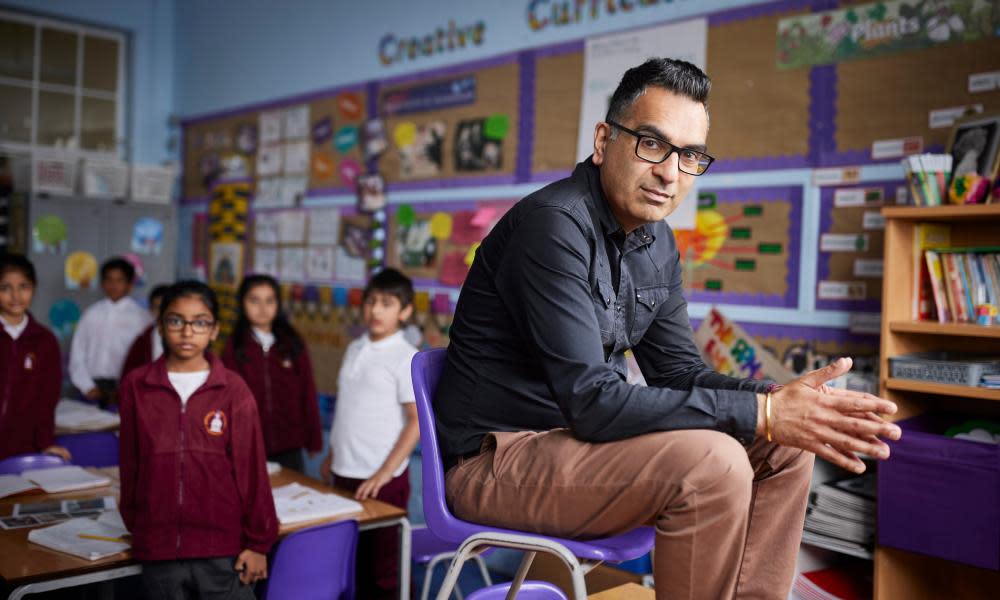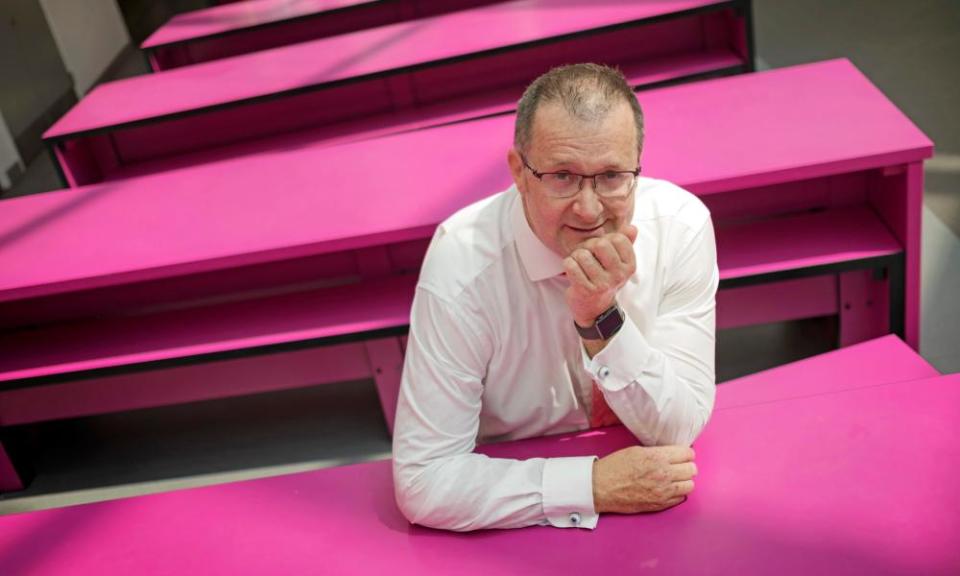‘Like looking for a unicorn’: inside English schools’ recruitment crisis

Kirsten Griffiths’ daughter is in a class of 35 for GCSE English and has “limited input” from her overstretched teacher. In September, when she starts her crucial exam year at her Hampshire state school, she has been told that many English lessons will have a non-specialist cover teacher as the school manages the juggling act of coping with too few staff.
“We’re really grateful we are in a position to support her with a private English tutor, but that makes me feel guilty because I know many families can’t do that,” she says.
Griffiths is a teacher herself at another secondary school. She switched unions this year so she could strike. It was the effect of teacher shortages on her own children that pushed her on to the picket line.
Her daughter is taking triple science, but with science teachers among the hardest to find nationally, the same teacher covers biology, chemistry and physics.
“My son is in year 8, and I don’t think he has ever been taught by a specialist maths teacher,” she adds. “As a parent you don’t get told. No one advertises that their school is using PE teachers to teach maths, but most schools are having to do it.”
Headteachers say there is now a vanishingly small list of subjects that won’t keep them awake at night if a teacher hands in their notice. And with one in four teachers leaving the profession by their third year, according to the Department for Education’s latest workforce census, this matters. PE and history are generally agreed to be the only job ads where you can be confident you will receive replies.
Schools fear the situation will get worse in the next few years. The National Foundation for Educational Research is forecasting that teacher-training courses will recruit less than half of the secondary teachers that schools need this year, based on applications so far.

Vic Goddard, principal of Passmores secondary academy school in Essex, says: “If you’re looking for a maths, science, computer science or DT [design and technology] teacher, you might as well be advertising for a unicorn.”
Until 18 months ago, his school typically had to re-run a job ad four times to find a teacher. Now he says: “If you’re lucky you might get someone on the 10th ad.” He has vacancies for maths and science which he has been trying to fill all year. He was looking for a head of both those subjects, but when the adverts drew no applicants, he promoted junior staff. He knows they will need mentoring and support.
This is a theme across the sector, with heads saying they have made “reluctant appointments” simply to have a person standing at the front of the class. A senior leader in a secondary school in the east Midlands, speaking to the Observer anonymously to avoid alarming parents, says: “We’ve got a person who we are willing to try for a term in science, only because there were no other candidates.” The school has a second vacancy in science for which it has “no credible applicants”, and the five supply agencies it is using have yet to find anyone. This leaves few options other than larger classes and non-scientists covering lessons.
Kulvarn Atwal, headteacher of two maintained primaries in Ilford, east London, says he has heard that some teacher-training providers are “taking students they wouldn’t have taken before” because applicants are down and they know that schools’ need for teachers is so great.”
“Some trainees are getting to the end of the course without the skills they need,” he says. “That matters because the expectations on teachers are greater than ever before.”
Rachel Roberts, who leads the Secondary English Initial Teacher Training course at Reading University, says this year she has received emails from desperate schools asking if any of her trainees have yet to find a job. She is adamant that having the right subject knowledge matters, saying it takes an expert to make teenagers see Shakespeare as relevant to their lives.
Related: Low pay ‘forcing teaching assistants out of UK classrooms’
“A specialist has that love of language, love of words, love of literature. That is what generates a love of the subject in pupils,” she says. The mother of a boy in the first year of secondary school in Essex, who asked not to be named, says that her son has had 12 different maths teachers this year, after his teacher left.
“He used to love maths and doesn’t really any more,” she says.
Jonny Uttley, chief executive of the Education Alliance academy trust in Yorkshire, said: “If the government does nothing there will be larger class sizes, and without enough specialist teachers there will be a loss of the specific subject knowledge children need to access higher grades.”
Matt Perks, a former physics teacher who now trains secondary school science teachers at Southampton University, counted 30 adverts for science teachers in local schools in February. Many remain unfilled. Only about 12 trainee teachers will graduate from his course this summer, which is half the number last year. He is worried about the future.
“The quality of teaching really influences pupil outcomes,” he says. “And running a department that is short-staffed ramps up the pressure on everyone else, making it more likely that teachers will leave.”
Will Teece, head of Brookvale Groby Learning Campus, a secondary academy in Leicester, says its recent advert for a business teacher had no applicants. “In previous years, we have had 15 or 20 applicants for this sort of post. Parents rightly raise concerns if they notice teacher gaps. In their minds, you should have done something to resolve the issue. But if you’ve posted multiple ads and there is no one out there, what can you do?”

 Yahoo News
Yahoo News 
